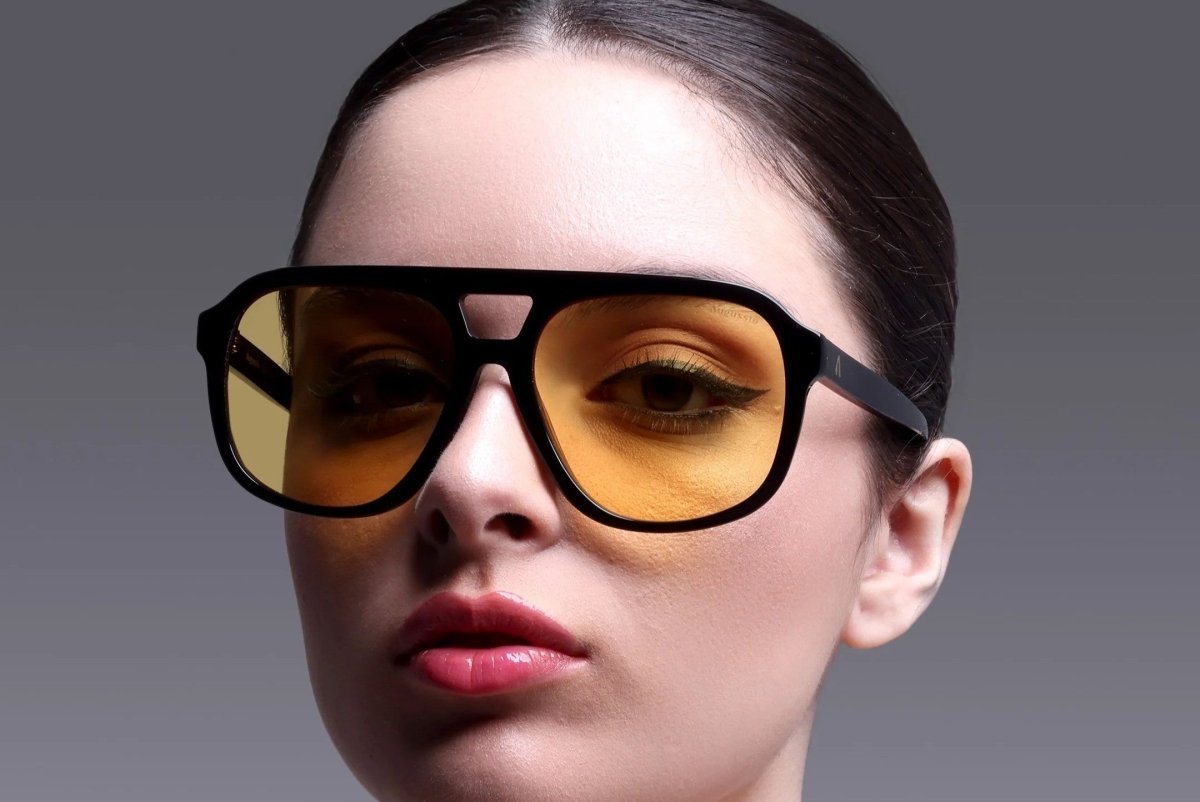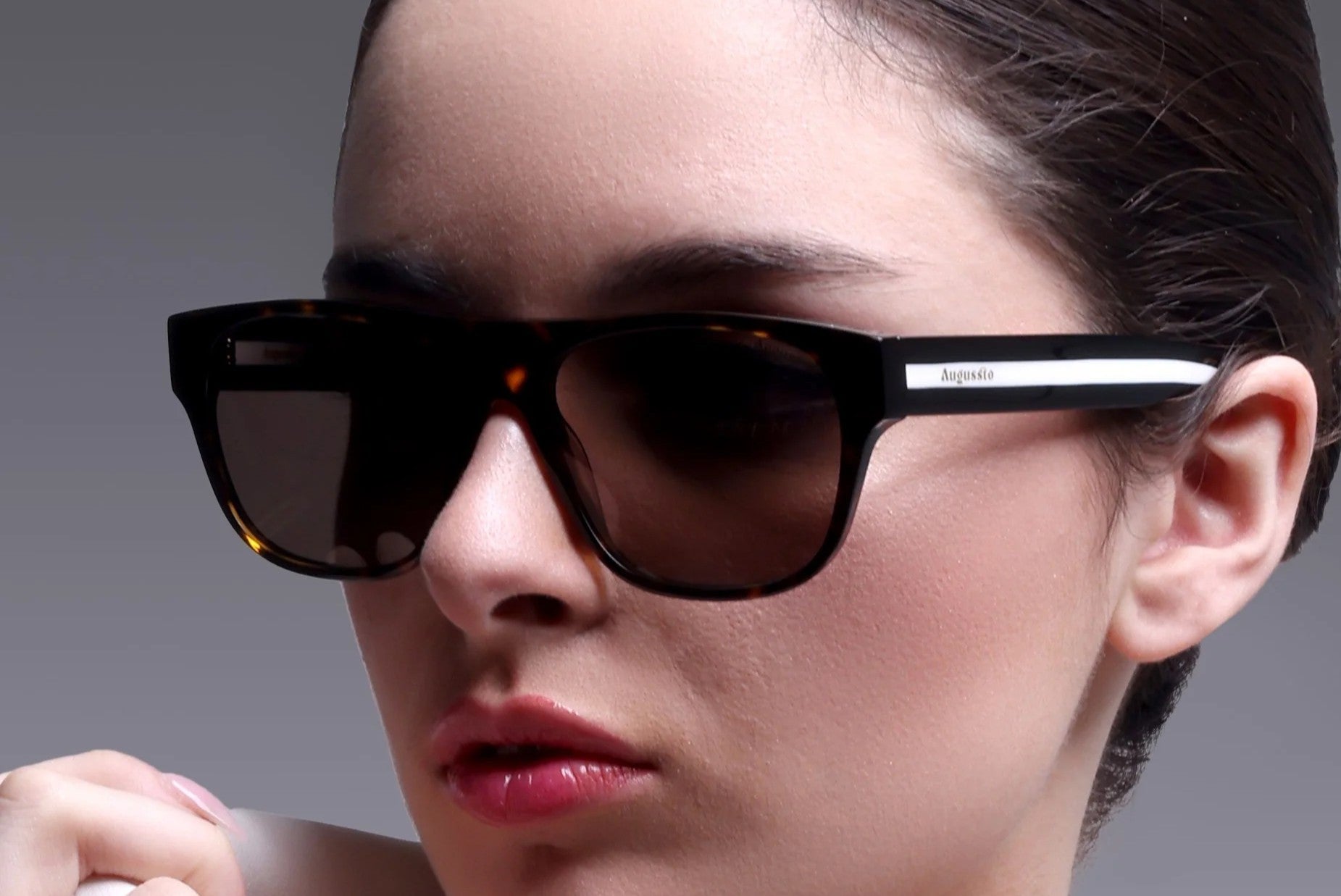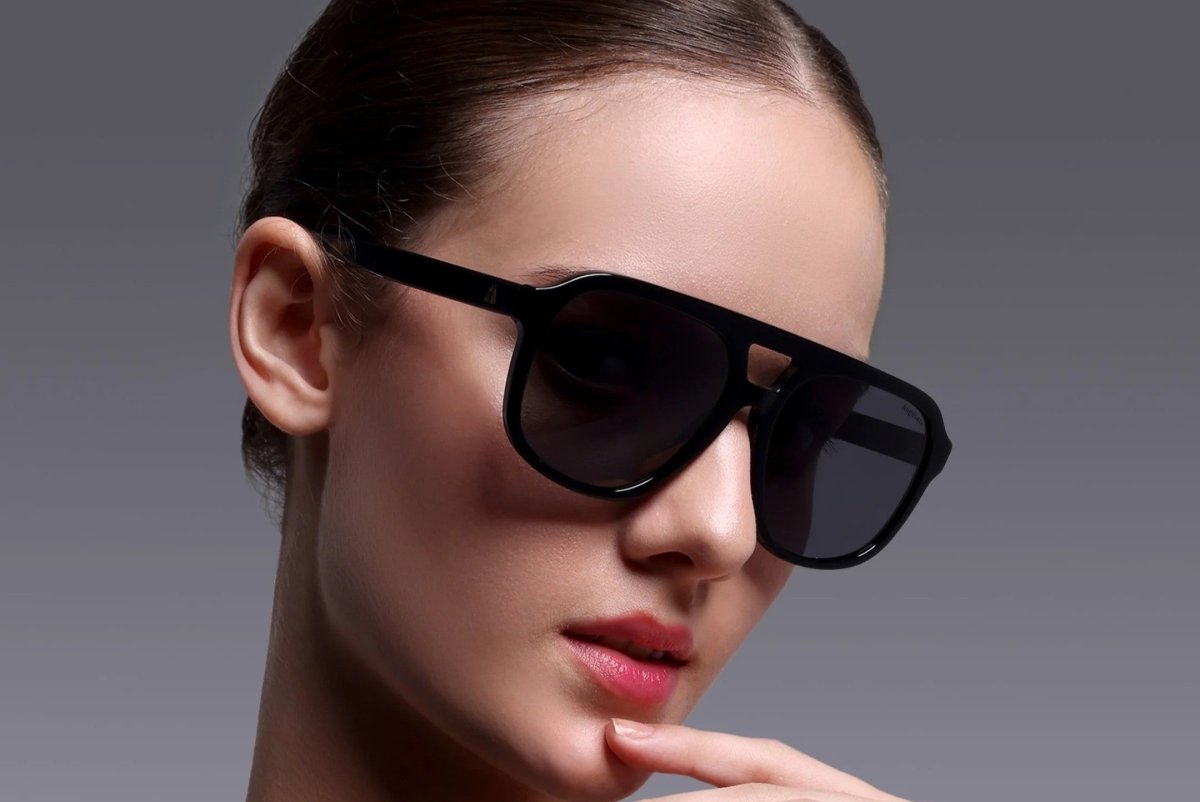What Is Blue Light and Why Does It Matter?
In today's world, screens are everywhere from the time you wake to the time you sleep, work emails, virtual meetings, streaming, and social media scrolling have users' eyes glued to our series of digital devices, behind the visibility of instantaneous convenience lies a hidden strain - blue light exposure.
Naturally, blue light comes directly from the sun, while blue light's exposure from smartphones, laptops, and LED lights is continuously more concentrated, given us more direct and prolonged exposure to artificial blue light over an extended period of time blue light may cause eye fatigue, headaches, and disrupted patterns of sleep - these effects are referred to as digital fatigue
The good news is the right pair of eyewear will protect your eyes and help preserve visual comfort, without sacrificing screen time and your own personal style!
In this blog, we will explore how blue light exposure affects your eyes, what the science is regarding blue light, and how modern-day optics, like Augussto's precision optics crafted lenses can help mitigate digital eye damage.
Understanding Blue Light
What Is Blue Light?
Blue light is a high-energy visible (HEV) light on the color spectrum, sitting between 380 - 500 nanometers. It’s shorter in wavelength and higher in energy than other colors, meaning it penetrates deeper into the eye.
Natural vs. Artificial Blue Light
|
Source |
Nature |
Typical Exposure Time |
|
Sunlight |
Natural |
Limited to daytime |
|
LED/LCD Screens |
Artificial |
8 - 12 hours a day |
|
Fluorescent lighting |
Artificial |
Constant in workplaces |
|
Smartphones, Tvs , Tablets |
Artificial |
Cumulative over years |
While natural blue light helps regulate our circadian rhythm and boosts alertness during the day, constant artificial exposure can overwork our eyes and disrupt sleep patterns.
The Science of Digital Eye Strain
Symptoms of Digital Eye Strain (DES)
If you spend more than 4-5 hours a day on a screen, then you have probably had any of the following:
-
-
Dry, itchy eyes
-
Head discomfort or blurred vision
-
Increased light sensitivity
-
Difficulty concentrating
-
Difficulty sleeping
-
A Vision Council survey from 2022 found that nearly 60% of adults have experienced some type of symptom related to eye strain to too much screen time.
How Blue Light Affects the Eyes
-
Reduced contrast and focus fatigue
While shorter wavelengths of blue light scatter more easily than longer wavelengths, this lowers contrast making it far more difficult for the eye to focus.
-
Retinal strain
Chronic exposure to high energy visible (HEV) light may create oxidative damage to retinal cells. While research is still ongoing, chronic exposure is thought to increase the long term risk of developing macular degeneration.
-
Disturbance of Circadian Rhythms
Blue light exposure can reduce melatonin, the hormone that tells your body when it's time to sleep. Whether they are being used for non-interactive treatment purposes or simply for lighting in the environment, blue light devices can lead to insomnia or other disruptive sleep problems.
Research-Backed Insights
Scientific research has begun to connect screen use with future vision problems:
-
-
Harvard Health Publishing (2020) found that exposure to blue light at night, even in limited amounts, can cause the duration of the physiological release of melatonin to lengthen and can alter sleep cycles.
-
A study highlighted by the American Academy of Ophthalmology (AAO) (2022) found a larger portion of individuals who used a digital screen for more than 8 hours each day reported experiencing eye fatigue compared to individuals who used a digital screen for 3 hours per day or less; furthermore individuals who reported eye fatigue while using a screen for 3 hours or less, reported eye fatigue at a rate of less than half of the 8 hours screen users.
-
Research by the University of Houston (2017) also found that study participants who were assigned to wear blue light blocking lenses produced 58% more melatonin the night they wore the lenses than the night they did not wear the lenses.
-
The message of these studies has been one of protection - not just an option, but a necessity.
Eyewear as Your Digital Armor
How Blue Light Glasses Work
Blue light lenses have a special anti-reflective coating designed to filter out or absorb high-energy blue wavelengths before they reach your retina. This helps reduce eye strain, improve focus, and restore your body’s natural sleep rhythm.
Features of High-Quality Blue Light Glasses
-
-
UV100 Protection - Shields against both UVA and UVB rays.
-
Reflective Coating - Minimizes glare from screens and artificial lighting.
-
Scratch Resistance - Ensures long-lasting clarity.
-
Lightweight Frames - Enhances comfort for prolonged wear.
-
At Augussto, we design eyewear that blends function with finesse - sleek, durable frames equipped with advanced blue light protection, built for the modern professional.
When Should You Use Blue Light Eyewear?
-
While on the job
Blue light glasses can reduce eye strain, keep you focused, and help you be efficient if your job entails long hours in front of the computer.
-
When watching a screen at night
When watching Netflix at night, or scrolling through a screen in the evening, blue light lenses can help protect melatonin levels, and in turn, sleep hygiene.
-
When gaming or creating
Gamers and designers commonly work for periods of time in front of bright screens. Blue light protective glasses can relieve glare, and soothe discomfort of the eyes.
Lifestyle Habits That Complement Eyewear
Even the best eyewear has its limits, but better digital habits in combination is better.
1. The 20-20-20 Rule
Every 20 minutes of using a digital device, look at least 20 feet in front of you for 20 seconds. This will help relax your eyes.
2. Monitor Settings
Brightness - the goal for your screen brightness is ideally equal to that of the space you're working in.
Contrast - If you're working on the screen then it might be worth considering using a different mode or filter if you're working late.
Font Size - make sure the font size is legible and comfortable enough such that you are not peering over anything, but able to read it comfortably.
3. Lighting
Glare on the screen is not good, but having overhead lights can also be overwhelming if they're harsh. If you're working off the screen occasionally at night using warm diffused light would likely be your best defense.
4. Hydration
Dry eyes and slight dehydration can also exacerbate discomfort of digital strain. So - hydrate! And don't forget to blink.
5. Breaks
Take breaks, and distance as much as you can from the screen, if possible. Every hour work for five or more minutes away from the screen! This will lessen visual and cognitive fatigue.
Separating Facts from Myths
Fact: Research has demonstrated the impact of blue light on melatonin production and sleep processes.
Myth: Many people think blue light is always bad.
Truth: Natural sunlight contains blue light, too, and provides some positive benefits to you as long as you are not in a period of highly prolonged exposure for a short time. In fact, deliberately being exposed to blue light during your day can boost short term alertness and mood.
Fact: Screens can create dry eye and eye fatigue.
Myth: Some people assume they do not need protection, unless they feel pain or distress in their eyes.
Truth: Prevention protection is important, because eye strain accumulates quietly, and you do not usually indicate if your eyes are strained.
Fact : Blue blocking lenses alleviate glare and other comfort concerns when looking at your screen in artificial light.
Choosing the Right Eyewear for You
When considering your eyewear investment for digital protection, consider these four areas:
1. Lens Technology
Consider lenses with multi-layer anti-blue coatings which block UV and HEV light and maintain color perception.
2. The Frame Quality
Choose lightweight hypoallergenic frames that will be sustained over long durations. Augussto’s acetate frames are an example, fit for an office, or out on the town, being comfortable, craftsmansh, and classically stylish.
3. Lens Tint
Avoid lenses with heavy night yellow tints, technology today provides coatings that block blue light while providing lens transparency.
4. Style for Purpose
Protective eyewear does not have to look clinical as in the past. Today’s eyewear comes with a sleek, minimalist option that fulfills your purpose in style at work, and at leisure.
The Augussto Edge: Protection with Personality
At Augussto, we believe that style should always come with comfort and protection. Our collection filtering blue-light offers:
- Precision engineered acetate frames
- optical lenses
- Advanced reflective coatings
- Ergonomic comfort and lightweight balance
Every frame goes through a rigorous testing process to ensure durability, quality fit, and lens clarity - you don't just look sharp, you see sharp.
Speculation: What the Future Holds
As the world is evolving more into a digital format, conversations about eye health will evolve. We will soon be able to deliver:
-
-
Smart lenses that will automatically change tint based on the level of blue light.
-
AI-based applications that will track your digital exposure and notify you when to get off the screen.
-
Augmented optics that combine wellness monitoring and eye protection.
-
All of these ideas may sound futuristic and complex; however, the underlying framework is all based on time - by taking care of your eyes today, they will take care of you tomorrow.
Conclusion: Your Eyes Deserve Better
The rate of digital life is going to continue to increase. Think of everything we are using now, from laptops, to smart phones, to LED lit work environments- more blue light is coming to you! However, if you stay updated about blue light, have the right blue light eyewear and stay healthy, you will be just fine!
Important Takeaways
There is natural and artificial blue light; the bulk of the time that you are exposed to artificial blue light leads to eye strain.
The screen can affect how you focus, feel comfortable and sleep.
Blue light glasses will help cut the glare, protect your retina and even re-sync your natural circadian clock. Discover how blue light impacts eye health, sleep, and focus. Get science-backed tips and the best eyewear solutions to reduce digital eye strain.










🫣 Adult Dating. Apply =>> yandex.com/poll/43o224okZdReGRb1Q8PXXJ?hs=909b5997ae98ca4ee7a9c594ae7bf0a3& Incident № YFNS2284294 🫣 —
mkkerx